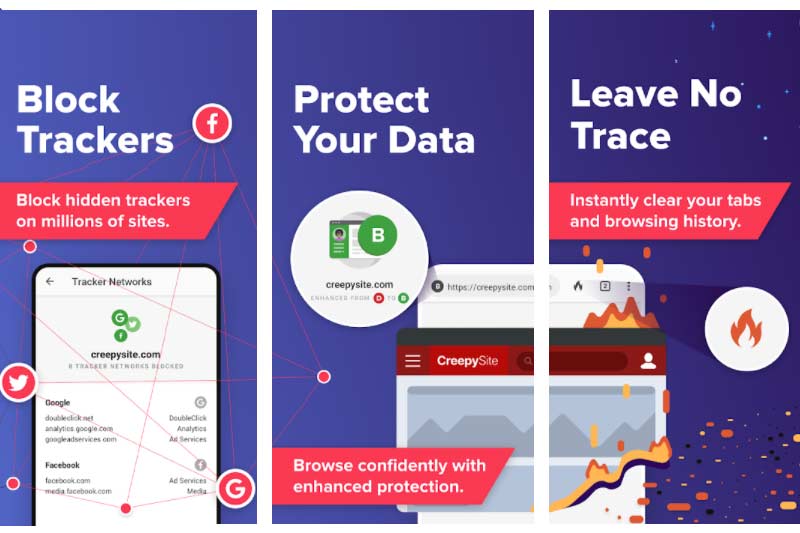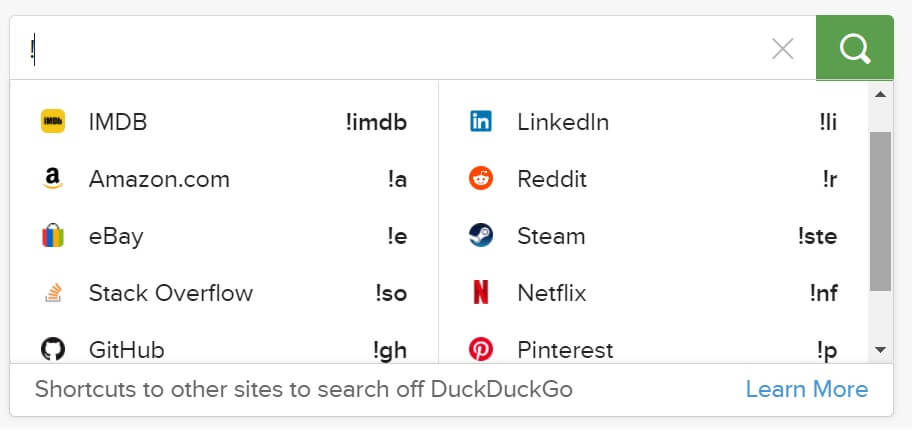DuckDuckGo is one of the alternative search engines to Google, such as Bing or Yahoo!, and its main focus is user privacy.
Typically, when someone enters a query on a search engine, it will crawl and analyze the content of the pages they have indexed. For this, they take into account the contents published by creators and compare matching keywords, and then sort results according to their relevance.
Relevance can be tailored to the user, as CNET notes: “Google collects a frightening amount of data about you, even more than you imagine” making it one of the disadvantages of search engines in general. What’s more, the technology news portal makes another chilling statement:
“Chances are, Google knows your name, your face, your birthday, gender, other email addresses you use, your password and phone number. Some of this is listed as public information”.
Have you ever wondered how the big G shows you an advertisement that just coincides with what you were thinking of? It’s not magic, it is that this company knows you very well and, on top of that, it remembers each search you make. This is what makes it the most powerful and most effective Internet search engine.

However, in recent years the public has become more aware of the importance of preserving their privacy on the Internet, so many wondered what DuckDuckGo is as this alternative search engine became a popular option.
Founded in 2008, this portal has gained so much reception that, in 2019 it registered 1 billion monthly searches. Its appeal is that it does not collect your information when you make a search, nor does it keep a history of your previous queries.
Aside from privacy concerns, the benefit of anonymity is that you do not get trapped in a filter bubble. DuckDuckGo also uses the API of the main search engines on the Internet. That is, it collects results from other search engines such as Bing, Yahoo! or Wikipedia.
Among other features of DuckDuckGo, the technology portal mentions that it does not store the IP address of its users or share the data about their searches with the web pages they have visited.

!Bang and other DuckDuckGo features
Now that you know what DuckDuckGo is , you may be wondering what other features it has apart from not stealing your personal information. This is where !Bang comes in.
This is a “command system to use third-party services.” To understand this and other features of DuckDuckGo, visit the search engine and, in the text bar where searches are made, type “!”.
When you do, a menu of options corresponding to well-known web services, such as Facebook, Amazon or Netflix, will be displayed so that you can access them quickly and with the keywords you want to use.

!Bang works with quick keyboard commands for each of these services. Thus, write “!W” if you want to make a search on Wikipedia, “!Tw” if it’s on Twitter or “!Li” for LinkedIn.
Keep in mind that DuckDuckGo does not share data about searches made by users. That means that neither Facebook nor Twitter nor the rest of the services in that searchbox will know what you are searching for or who you are.
Why should you download DuckDuckGo on your smartphone?
There is no doubt that DuckDuckGo is a safer, more private way to browse the web, and since today we spend more time on our smartphones than on any other device, you may be wondering if it is available as an app.
You can find DuckDuckGo for free both on the Android Play Store and the iOS App Store. Once you install it, the app will invite you to do a search and will assure you that “it will block the trackers so they cannot spy on you.”

Within the app, you will notice there’s a flame symbol at the bottom of your screen. When you press it, an option appears that says ‘Delete all data and tabs’ to leave no trace of your browsing.
However, the app has other very interesting functions. When you go to ‘Settings’, you will find a section that says ‘Privacy’ and, within it, there are two features called ‘Fireproof Websites’ and ‘Privacy Protection White List’.
In general terms, both fulfill the task of restricting the access of cookies, which are tiny computer files that the web pages you visit send to your browser, are stored there and obtain information about you. They do this for advertising purposes. The job of cookies is to ‘tell’ brands and companies how we behave on the internet to place ads according to our preferences and interests.
Companies even used information from Facebook users to “infer psychological profiles” of each one and thus send them personalized advertising, including political ads that ended up having a great impact on elections around the world.




